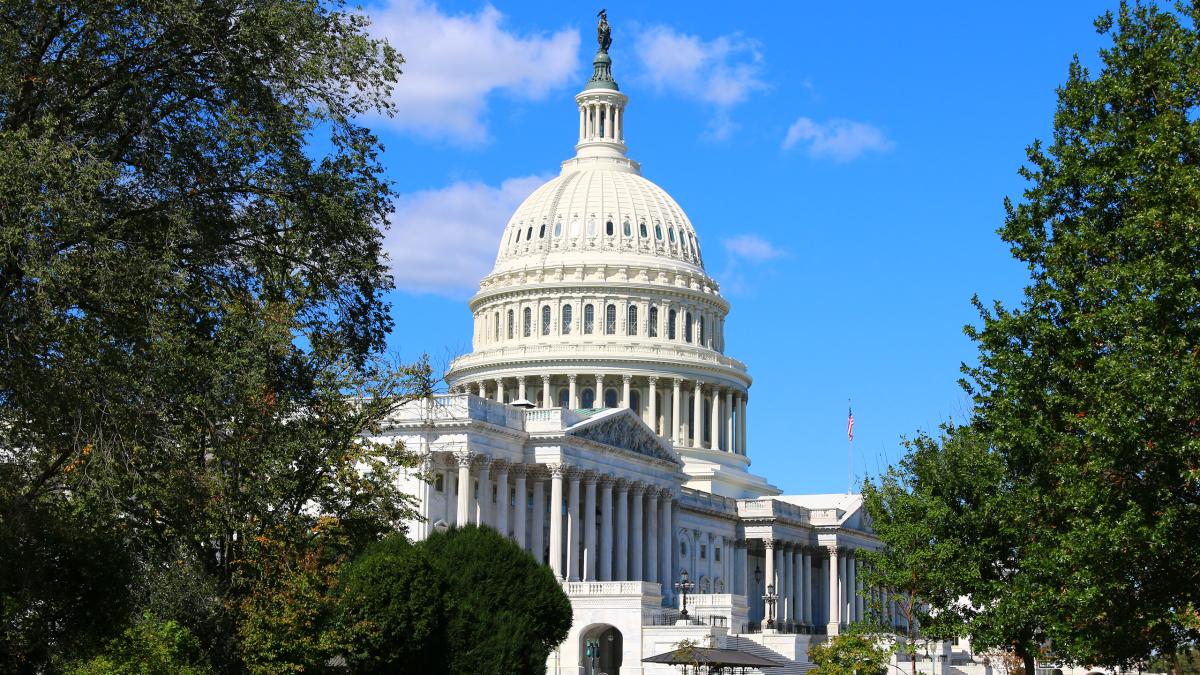Smucker: Debate over raising federal debt ceiling should launch larger conversation about nation's finances

The sky isn’t falling in the nation’s capital, according to U.S. Rep. Lloyd Smucker.
At least not when it comes to the debt ceiling and the larger debate about the national debt, the Lancaster County Republican said, dismissing warnings from Democrats who say House Republicans are holding the nation’s fortunes hostage.
Yes, the national debt is a big challenge that needs to be confronted. But it’s a problem that will take years to address, Smucker said, which is why Congress and the White House need to start talking now about averting a future debt crisis.
Smucker, a member of the House Budget Committee, spoke with LNP | LancasterOnline on Tuesday about the current debate over raising the federal government’s debt ceiling and what he and his fellow Republicans believe needs to be done.
First and foremost, he said, neither party wants this debate to result in the United States “not making good on its debt – we cannot allow that to happen. Republicans and Democrats alike do not want to allow it to happen.”
But Republicans are insistent on having a larger discussion about debt and spending, Smucker said: “This is a time when we should be talking about structural changes that ensure the future of the country for future generations. It’s a time when we should be talking about the fiscal trajectory that we’re on.”
Not for the first time, Smucker outlined what that trajectory is. National debt held by the public amounts to 96% of gross domestic product (GDP). That means the sum total of the country’s outstanding debt is nearly the equivalent of the annual value of all U.S. economic activity.
It hasn’t been that high since the end of World War II, Smucker noted. And if current spending and borrowing policies aren’t changed, the Congressional Budget Office predicts the total national debt will rise to 185% of GDP within three decades.
“The longer we wait to implement changes to that trajectory, the greater the risk will be of a sovereign debt crisis or some other economic calamity that would impact the American people,” he said.
Solutions
Smucker said reducing the size of the national debt relative to the size of the U.S. economy should rely on two strategies. On one side is growth – enacting policies that allow “the ingenuity of the American people to flourish, and to prosper,” Smucker said.
That means crafting tax policies that reward entrepreneurs who build businesses and employ workers in the United States, and it means cutting regulations that Smucker said stifle business growth – the sort of steps Republicans have advocated since the party’s founding.
But Smucker said it also means supporting “career and skills training to match people with the jobs that are available today” and enacting immigration policy “that brings additional skilled workers to fill the jobs” needed to grow the economy.
Congress and the White House should also talk about the spending side of the equation, he said, and that will mean talking about Social Security and Medicare.
Smucker wouldn’t say he thinks those programs should be cut. Lawmakers “understand that these are programs that people have paid into for their entire life,” he said. “There are individuals who are relying on these programs throughout their retirement to ensure they have some quality of life, throughout their retirement. And I think we have to keep the promises that have been made for the people who are paying into the system.”
Instead, Smucker pointed back to the early 1980s when President Ronald Reagan and Congress established a blue ribbon commission of experts to consider ways to protect Social Security for future retirees. That resulted in a 1983 law that sped up the timetable for payroll tax increases while also forcing more workers – employees of both the federal government and nonprofits – to pay into the program. Combined, the steps put the program on stabler footing for decades to come, according to a Congressional Research Report published last year.
“I think this would be a perfect time to bring together both parties to talk about how the programs can be improved to ensure that we can keep the promises that have been made,” Smucker said.
A national conversation
President Biden has said he won’t negotiate with Republicans over raising the debt limit, a position Smucker said is unrealistic. For the White House, he said, it would be a “mistake for the administration to think that we will not demand a discussion and negotiation over structural changes that could be made at this time.”
To that point, the larger message Smucker said the people of the 11th Disrict should take away from the debate is that the nation’s fiscal problems can be fixed.
“I want people to understand the situation that we’re in. … And then secondly, I want people to know that it’s solvable. … We can solve this,” he said.
That solution will have to involve Democrats in the U.S. Senate and President Biden, though their approach so far is to blast Republicans for risking the nation’s solvency while harboring plans to cut Social Security and impose a national sales tax.
“The president looks forward … to telling them (Republicans) about his plan to cut the deficit – beyond the historic $1.7 trillion we have delivered – strengthen retirement programs, invest in key priorities, and fund it all by making the wealthy and big corporations pay their fair share,” White House Press Secretary Karine Jeanne-Pierre said Friday.
For Smucker, that rhetoric ignores the scale of the problem facing the country. Conceding the mood in Congress is “more acrimonious ... than I’ve seen since I’ve been in elected office,” he said: “This is really a time when everyone – the president, members of the Senate, members of Congress and even the public – should be talking about what is the best path forward to ensure that the economic future is secure.”